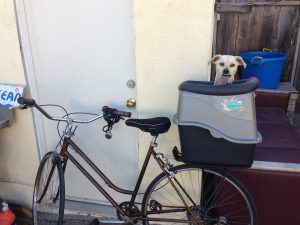Travel on a Budget
1. Country – Go somewhere that nobody’s going.
If everybody’s going someplace, go to a country next to that place that nobody’s mentioned. Instead of Greece, go to Albania. Instead of the Czech Republic, go to Slovakia. And my personal favorite, instead of Perú, go to Bolivia. It’ll be similar, but with fewer tourists and less expensive. Don’t ever look at language as a barrier to your going someplace. Business owners can take your money in any language, and generally everybody appreciates people trying to speak their language. If you speak five words, they’ll say you’re great. If you speak 100 words, you’re great. If you’re fluent in the language, local people will tell you, “Wow, you’re great.”
2. Season – Prices are lower and places are less crowded in spring and fall than in summer.
Most of the year is off-season, when places aren’t changing their rules and prices for tourists. This is closer to real life than anything you will witness in July/August or December/January.
3. Length – Go slower. Take fewer trips. Stay longer in each place.
If you have 15 days, don’t be like everyone else and go six places for two and a half days each. Go three places for five days each. That’s half as much time spent in transit and half as much money spent on tickets. Rushing around trying to see stuff is a guaranteed way to not see anything.
4. Lodging – Stay with friends (of friends). Couchsurf. Camp. Stay at a church. Overnight buses/trains.
Lodging will probably be your biggest expense, but it doesn’t have to be. Some travelers are so good at making friends that they never have to pay to sleep. With the money you save here you can cook something delicious for your hosts and treat yourself to things you otherwise wouldn’t have the budget for.
5. Transportation – Walk, not bus. Bus, not train. And train, not plane, unless it’s a “super-cheap flight”.
Always take 100% public transportation. The only time to travel by a method other than that which the local people use is when environmental conditions are extreme, and even then, not always. For example, the guidebook will tell you that it’s not safe to take the bus in northern Colombia because there are guerilla troops there. But when you go to the bus station ticket counter and ask if it’s safe, they’ll say, “Why, because of the landslides?” And you say, “No…” And they say, “Do you want a ticket or not?!” And then you buy a ticket.
6. Food – Eat grocery store, market or street food.
Eat sit-down restaurant meals on special occasions, and only then at the right places: simple-looking and crowded = cheap and yummy. But remember, “lo barato siempre sale caro”, or “cheap stuff always ends up being expensive”. You don’t want to eat the cheapest food. But the second cheapest food is usually alright!
7. Drink – Drink water.
Travel dehydrates you. Drink tons of water. All other drinks are more expensive than water and make you have to pee more frequently, which is a whole other hassle and expense. Buy your drinks at the grocery store. Drinking water is also free insurance against drinking too much of something else, passing out, getting your wallet stolen, and waking up face-down on the train tracks to four toothless locals kicking you, which happened to one of my students once.
8. Activities – Beach, park, plaza!
There’s plenty of public transportation, there’s no admission fee when you get there, picnics are cheap and delicious, and there’s local people everywhere. Here’s a fun game: take a picnic to a beach or park or plaza, observe all people and things around you, wait for people to come up and ask you stuff, take notes or do a little yoga if that’s your thing, and stay until there’s nobody around who was there when you arrived. Do this at least once in every place you visit, and you’ll have a 100% real way of comparing different places at no cost.
9. Operations – Be efficient. Make deals. Keep your game tight.
Use the places you stay – breakfast, book exchange, wifi, kitchen, sinks for hand-washing clothes, and luggage storage are often free. If the place isn’t crowded, get a lower rate for longer stays. Because every trip has been done before, use online travel forums to find good logistical information without the weight or cost of a guidebook. In towns that aren’t yet overrun with tourism, offer to translate restaurant menus in exchange for a free meal. Cook or clean at a hostel for a month in exchange for free bed and breakfast. Get an extra ATM account for emergencies. Losing your card abroad will mean extortionate replacement charges and several days with no cash. Raise your withdrawal limit to save on ATM fees. Email yourself front and back copies of all your documents. Carry coins. Carry bills in separate pockets. Never carry your ATM card except to the ATM or your passport except at borders.
10. Style – Act like you’ve been there before. Look pleased or displeased, but never surprised.
Be polite, be nice, smile, and good things will happen. Speaking a few local words well can be the difference between a $5 and a $20 taxi ride. Carrying as little as possible will earn you respect and get you invited over more often. Lots of people who’d never invite a backpacker into their house have no problem with a regular person carrying a little backpack. Whenever you’re a houseguest, take care of your host, always ask before showering, and remember, “Guests of guests may not bring guests.”


